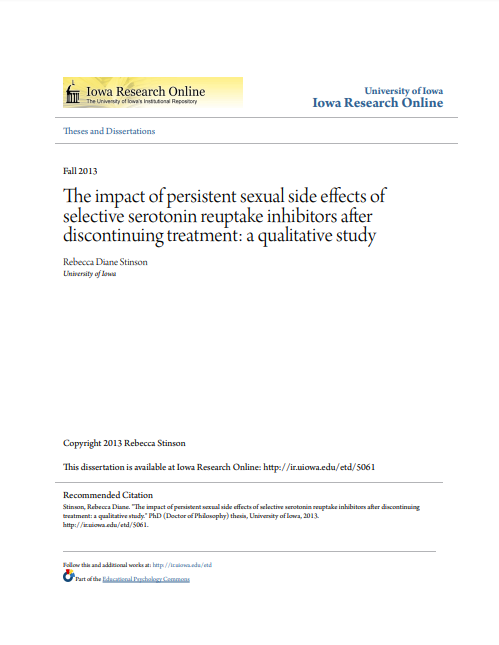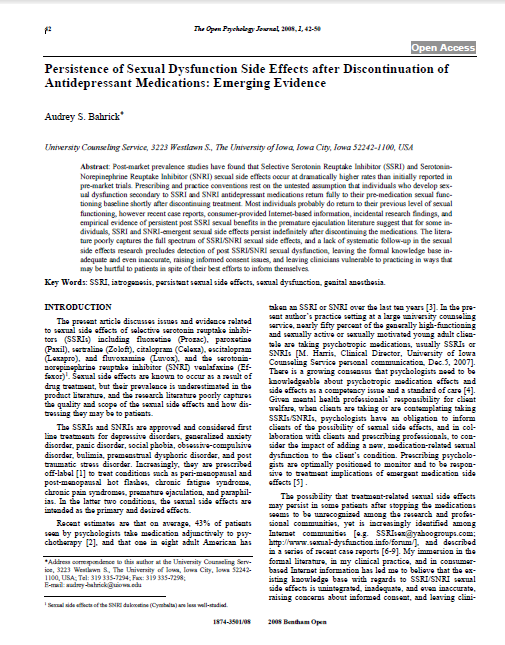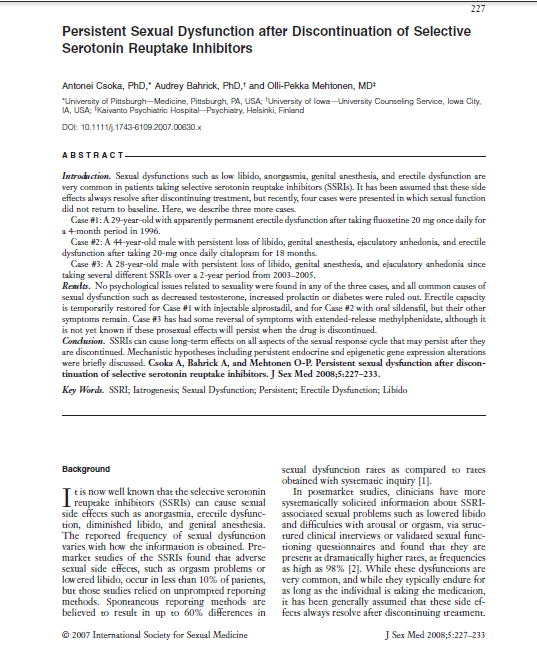RxISK: Sindrome da sospensione e PSSD: diagnosi finali?

17 luglio 2017, Rxisk.org Diagnosi Una delle cose che RxISK può offrire a qualcuno con PSSD, Disfunzione sessuale Post Ro-Accutane, problemi di ritiro/sospensione persistenti, o una serie di altri problemi è il riconoscimento. Sì, questo farmaco può causare questo problema. Il semplice riconoscimento può essere utile. Nelle impostazioni legali un appoggio può cambiare la vita. Ma nella vita quotidiana, per qualcuno con problemi di ritiro in particolare, una diagnosi porta un'aspettativa di più - che si possa fare qualcosa per mettere le cose a posto. Nel momento in cui le persone vengono su RxISK con domande o vengono da me in una clinica nel Galles del Nord, molti di loro hanno provato tutte le opzioni ovvie - lenta dismissione, passaggio a soluzioni liquide, esercizio fisico ecc. - e hanno ancora problemi. Essi, e a volte le loro famiglie, hanno cominciato a stancarsi. "Ora verrai a dirmi cosa fare per sistemare questa follia, vero?" Stuart










